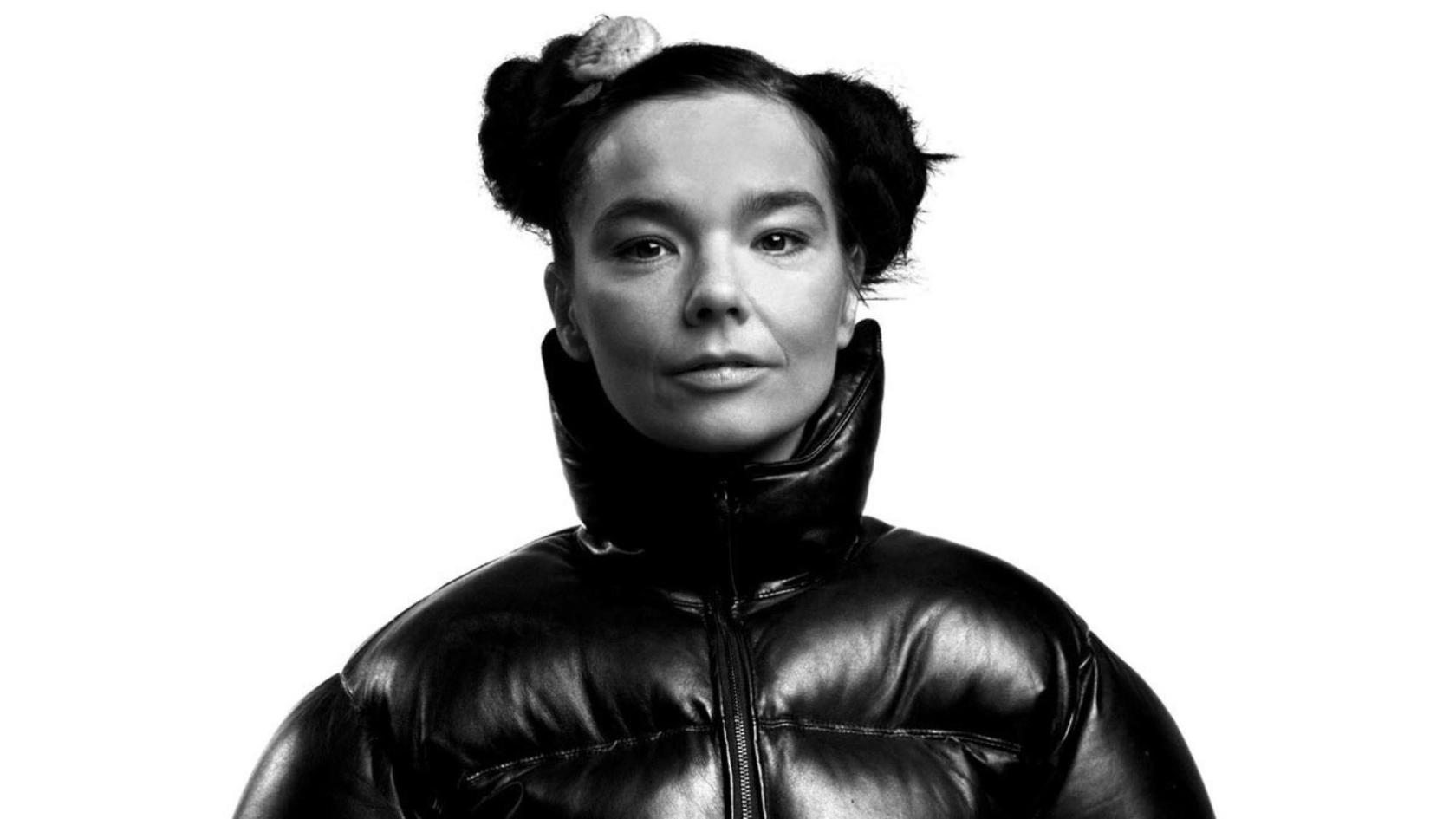For more than three decades, Björk has defied gender stereotypes and repeatedly transformed herself. In 1982, as a 16-year-old, she sported a knit sweater vest with a shaggy bowl cut and very much resembled a 12-year-old boy. One year later, Björk appeared hyper-feminine in a frilly dress with an oversized bow and her cheeks painted red like an antique doll. Three years after that, during a live performance with post-punk group KUKL, she rocked out with her pregnant belly out. She wore what looked like a dead swan to the Oscars, said she wasn’t into normcore sex, and attacked a reporter. She was whoever she wanted to be, did whatever she wanted to do, and didn’t apologize for any of it. In short, she was was the embodiment of feminist ideals — except, for almost as long as Björk has been famous, she has denied any association with the women’s movement. But three years ago, at the age of 48, she did an about-face and finally voiced her support for third- and fourth-wave feminism. Here, we trace her complicated relationship with the women’s movement through her own quotes, which range from downright denouncements to girl-power prose.
“Men can be silly, fat, funny, intelligent, hardcore, sensual, philosophical, but with women, they always have to be feminine,” Björk said in a 1994 interview (above). “I think this is bullshit. I just like to see women who can be characters, and can be themselves.”
“I think the only way [women] are going to win some kind of battle is just to ignore all this feminist bollocks,” she said in a 1996 interview for a Finnish TV show (below). “Every time women start complaining about their position, I just yawn. Just do what you want to do. Don’t say, I can’t be in a band, just go and do a band.”
“You know, feminists really tire me,” she said in a 1996 issue of Bust magazine. “They really bore me to death.”
“You could probably call my mother a feminist, and I watched her isolate herself all her life from men, and therefore from society,” she told Bust in March 2005. “Obviously, I can’t take her as an example of all feminists, but I find for my generation, it’s important to do things instead of just complaining that things are not right.”
“It’s interesting for me to bring up a girl,” Björk told The Guardian. “You go to the toy store and the female characters there — Cinderella, the lady in Beauty and the Beast — their major task is to find Prince Charming. And I’m like, wait a minute — it’s 2005! We’ve fought so hard to have a say, and not just live through our partners, and yet you’re still seeing two-year-old girls with this message pushed at them that the only important thing is to find this amazing dress so that the guy will want you.”
“I definitely can feel the third or fourth feminist wave in the air, so maybe this is a good time to open that Pandora’s box a little bit and air it out,” she said in a 2015 interview with Pitchfork. “For example, I did 80% of the beats on Vespertine and it took me three years to work on that album, because it was all microbeats — it was like doing a huge embroidery piece. Matmos came in the last two weeks and added percussion on top of the songs, but they didn’t do any of the main parts, and they are credited everywhere as having done the whole album. [Matmos’] Drew [Daniel] is a close friend of mine, and in every single interview he did, he corrected it. And they don’t even listen to him. It really is strange.”
“I didn’t want to talk about [feminism] for 10 years,” she admitted in the Pitchfork interview, “but then I thought, ‘You’re a coward if you don’t stand up. Not for you, but for women. Say something.'”
“On the activist Volta I sang about pregnant suicide bombers and for the independence of Faroe Islands and Greenland,” Björk said in a 2016 Facebook post [which i-D edited for clarity]. “On the pedagogic Biophilia I sang about galaxies and atoms but it wasn’t until Vulnicura where I shared a heartbreak I got full acceptance from the media. Men are allowed to go from subject to subject, do sci-fi, period pieces, be slapstick and humorous, be music nerds getting lost in sculpting soundscapes but not women. If we don’t cut our chest open and bleed about the men and children in our lives we are cheating our audience.”
Toward the end of that post, Björk added, “Next year, even though I was brave to share with you a classic female subject matter — the heartbreak — I get to have a costume change and walk out of this role.”
“My mother was a very active feminist and she raised me thinking that we had complained enough, and it was time to start doing things. So, I went out and did things. Made sure that I wasn’t complaining,” she told Iceland magazine in 2016. “But, then I realized that the younger generations maybe don’t have the same experience as I did… I felt that I had to support them by saying that they were not alone… That this was hard, and that’s true.”
